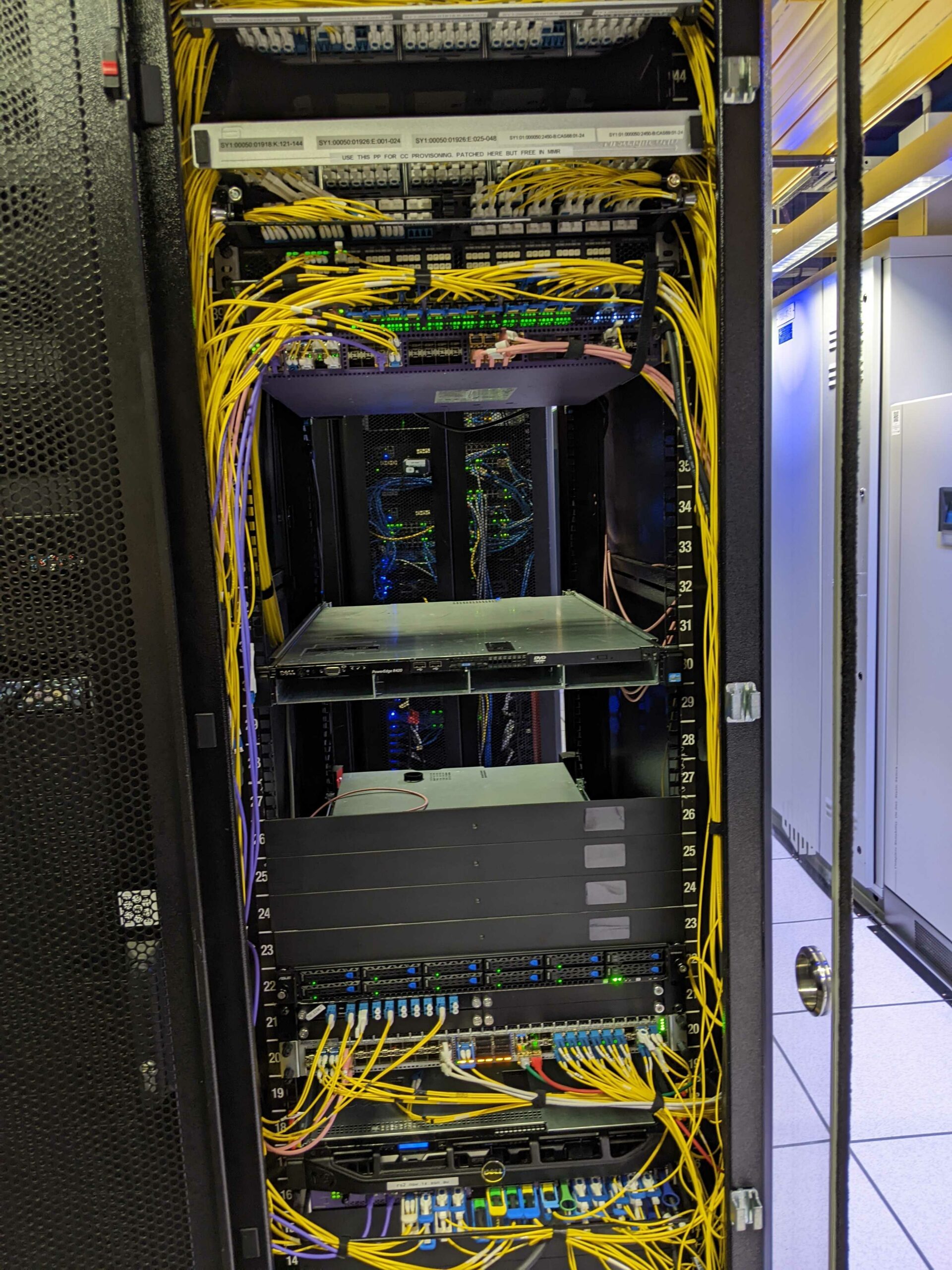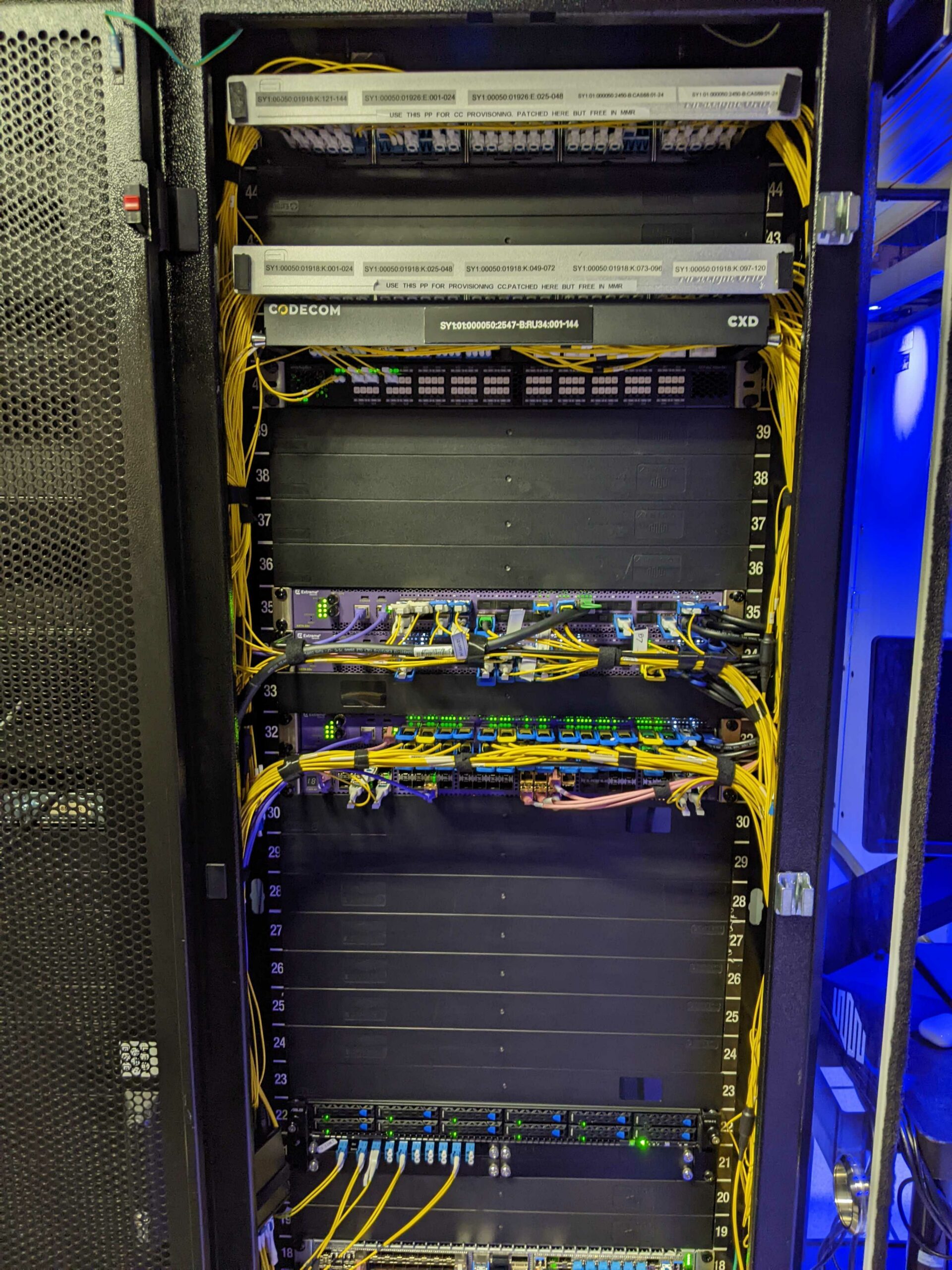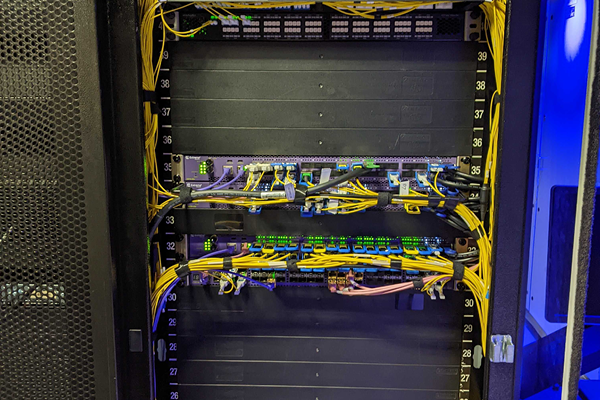IAA Newsletters
This month’s Meet the Member segment features our wonderful Deputy Chair, Brett O’Hara, who is employed as a Senior Network Engineer at Vocus in the Platform Engineering Group. Brett joined IAA in 2019 after attending IAA events as a guest of a Corporate member to meet and network with people in the industry.
Brett’s interest in the Internet industry was an extension of his early hobby: messing around with modems and other network gear. Working out how to exchange international email via UUCP locally rather than expensive international calls was a real thrill – he was lucky enough for this to then become a career!
Throughout his career, Brett has achieved many things. From starting out in a dial-up ISP in the 90s that quickly evolved from PSTN to ISDN to Frame Relay, ATM and ever upwards. Moving from kilobits to megabits and then gigabits in just a few years. These days working at Vocus, he evaluates, selects and deploys new network platforms into their network, as well as manages new features and lifecycles on existing platforms to help Vocus stay on top of new and developing technologies.
Read More
Next month Narelle will be presenting at the Cyber Security for Government Summit 2022 – building government’s cyber resilience capability.
Date: Tuesday, 26 July – Thursday 28 July 2022
Type: Hybrid
Location: Hotel Swissotel Sydney or online
This event offers an in-depth look at how national and international organisations are building their cyber-defences in an increasingly vulnerable environment.
The program offers practical knowledge to develop a cyber threat intelligence program as cyber-attacks escalate. This trend is highlighted by governments being warned to improve resilience in a heightened threat environment. The agenda also spotlights the action plan to build the government’s cyber-resilience capability, together with a look at future cyber security funding, amendments to cyber security legislation, and cyber security policies across all tiers of government.
The agenda is tailored for cyber and information security professionals directly responsible for protecting government assets, critical infrastructure, and data against malicious actors.
If this is an event that you are interested in, please visit their website for more information.
Read More
Across two nights, Equinix SY1 had new equipment installed and the layout of hardware rearranged. This work was necessary as it helps to increase our hardware capacity to keep up with the demand and builds further resiliency into this site. Two of our engineers worked across two nights to complete the job and even managed to take a couple of minutes to record their WA-IX birthday wishes. Thanks for your hard work, team!
Before:

After:

Read More
Completed Submissions
Telstra-TPG Merger Authorisation | ACCC
In our response to the Commission’s consultation regarding the merger authorisation requested by Telstra and TPG, we noted our general support for the principle of open access provided at a fair cost, while bringing attention to the potential risk of adversely hindering competition through entrenching dominant players in the market. Overall, IAA believes that any infrastructure built with public money should be open to all relevant and qualified telecommunications providers to access.
National Data Security Action Plan | Department of Home Affairs
The National Data Security Action Plan is in a very early stage of development. In our response, we focused on the need for government to clarify the policy context surrounding data security for the telecommunications sector. We called for greater meaningful engagement with the sector, and support for businesses to encourage collaboration. While we acknowledge the need to ensure Australia’s data security, it is imperative that this takes a multistakeholder approach, and that the Action Plan is cohesive, clear and effective.
Open Submissions
NBN Co. SAU Variation | ACCC | 8 July 2022
The ACCC is seeking submissions to its report on NBN Co.’s SAU Variation. The proposed variation from NBN Co includes product and pricing commitments, changing the framework for NBN Co’s cost recovery, and incorporating fibre-to-the-node and other copper-based technologies to create a single regulatory framework for all technologies. We are still keen to hear from any members with views on this important topic, as we know it is a highly contentious matter!
Read More
During the month of June, we released two independent reports that assess IAA’s contribution and importance to Australia’s Internet. In this report, “The Importance of IXPs in Australia”, Professor Matthew Roughan from the University of Adelaide provides an analysis of the value and importance of IXPs. Using technical and scientific literature, he substantiates the benefits of IXPs, including improving performance, reliability and security. It is an excellent report, as it contains a substantial technical background, a review of the scientific literature on IXPs, and clearly articulates their benefits. We highly recommend adding it to your weekend reading list! Read the full report.
Read More
Earlier last week, we released a report “Benefits of the Internet Association of Australia” by Michael Kende – a globally recognised expert economist and thought leader on issues relating to Internet interconnection and Internet Exchange Points (IXPs). The report outlines the benefits of Internet Exchange Points, particularly the peering network we provide and other ancillary services that significantly benefit the Australian Internet ecosystem. It considers our broader services and offers an economic perspective on their contribution to the Internet market through cost reduction and much more. If you want to read the full report, you can access it through our website.
Read More
One of our staff members caught up with Michael Malone while hiking on the El Camino de Santiago in Europe! Michael was one of the owners of iiNet when the Association was formed and was one of the significant contributors of hardware and expertise that helped build WA-IX. He recounted what connectivity and the market were like back in the early days of the Internet in Australia and described WA-IX as a cooperative effort more than a profitable venture.
When asked about initial discussions regarding the exchange, Michael recalled that many WA techs had been talking about it as a peering point for a long time, and everyone knew it would be a good thing. One sticking point was the actual physical location, as the closest organisation would pay less to connect to the IX. He said the most obvious place was in the city as Wantree, OIS, and iiNet were all there, but others like Omen and DialIX were in the suburbs. After much going around, the QV1 location was finally agreed upon!
Michael recalled that people like Michael O’Reilly, PRK and Patrick from iiNet; Mark and Mick from Omen; Roger Yerramesetti from Wantree; David Luyer at UWA and many others rolled up their sleeves to set up WA-IX. They all volunteered their time to build and maintain the new IX. He also explained that once the IX was built, it became an essential service because the core ISPs and universities were already connected and given that it was mutually beneficial, it was even more compelling for others to join it – pretty much the definition of a network effect.
Michael explained that the IX survived because of good decisions at the beginning, many of which were really just good luck and the power of engineering consensus. The uptake of it increased because of goodwill, the good it did for the community and approaching those who were not connected and asking them, “why not?”. Initially, they ran a couple of conferences that brought people into the same room, which seemed to help, too.
Michael hopes to see the Association properly funded and continues to bring the Internet engineering community together – to make decisions based on what’s good for the connected community. He would also like to see a place of learning where members can get together and exchange war stories in a fun and casual setting.
Read More
Another month has passed and work on the new portal continues. We’re not far from launch with final internal testing kicking off this month – we want to make sure it’s smooth, user friendly and looks fabulous! Over the next month, keep an eye out on our social media channels for sneak previews of the interface and what you can look forward to.
Closer to the cutover time, you will receive communications from us via email to ensure your transition onto the new portal is as easy as possible. If you haven’t already, please ensure that your details are up to date, so you receive all the information you need.







